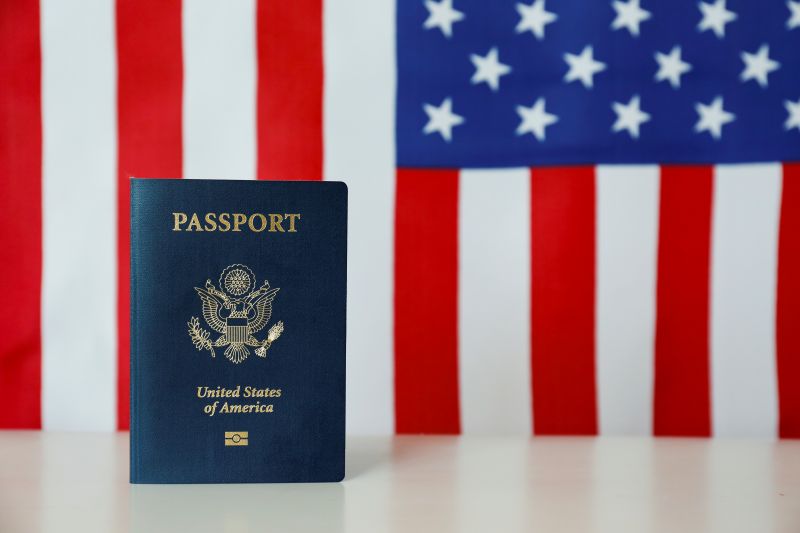The E-2 treaty investor Visa allows entrepreneurs from treaty countries to build a business in the United States. It provides an opportunity to live and work legally while building the American dream through an active, legitimate investment.
One key decision you will face is whether to invest in a franchise or start an independent business. Each option has benefits and challenges, especially regarding Visa approval. This guide will help investors understand the right approach in Texas.
Comprehending The E-2 Treaty Investor Visa
The E-2 Visa is available to nationals of countries that maintain a commerce treaty with the United States. To qualify, applicants must invest a substantial amount of capital in a business that they will actively manage and develop on a daily basis.
Immigration officials require the business to generate meaningful revenue and help create jobs that contribute to the U.S. economy. They want to see active ownership where the investor takes on risk and participates in actual business operations. Passive ownership of a company without day-to-day control may result in denial.
Understanding these fundamental requirements will help you choose a business model that aligns with the E-2 Visa framework. The next section examines how a franchise investment can meet these legal and financial expectations for immigration.
Choosing A Franchise For Your E-2 Investment
Franchises continue to attract E-2 Visa investors because they offer structure, brand recognition, and built-in support systems. But before you commit, it’s vital to understand the whole picture. It includes upfront costs, operational restrictions, and long-term business expectations associated with a franchise model.
What Is A Franchise?
A franchise is a business arrangement where you, as the franchisee, purchase the rights to operate under an established brand’s name. In exchange, you must follow their operational guidelines and maintain specific standards. You benefit from their name, systems, and customer trust.
The franchisor provides access to the brand’s products, services, and operational tools. It usually includes marketing assistance, staff training, and ongoing support. These elements can help streamline the process of starting your business and give you a clear path forward.
Why Are Investors Drawn To Franchises?
Franchises are attractive because they have a proven business model, making your investment appear less risky. The structured operations and financial projections make it easier to demonstrate a legitimate, viable business under E-2 Visa requirements.
Popular franchises already enjoy a customer base and widespread recognition. You’re not starting from zero. You benefit from brand trust and national advertising campaigns that independent businesses might take years to build. It reduces the marketing effort required in the early months.
What Are The Challenges With Franchises?
Franchises often come with high initial fees and recurring costs. These payments reduce your net profits and may limit the financial flexibility of your investment in the future. You’ll also face operational limitations imposed by the franchisor.
Most franchise agreements restrict your ability to modify the product line, pricing structure, or brand identity. If you want to innovate or experiment, you’ll need franchisor approval, which isn’t always guaranteed or fast.
What Are The Common Franchise Categories In Texas?
Texas is home to various E-2-friendly franchises. Investors frequently choose fast food, senior care, fitness, cleaning services, and childcare operations. These categories generate steady revenue, provide essential services, and show clear growth trends across the state.
While franchises provide structure and market-tested business models, they also require significant investment and limit creative freedom. An independent business might be better if you want more control and a fully custom approach.
Going Independent, Starting Your Business
Independent businesses allow E-2 investors to build a business from scratch based on their concept, plan, and goals. This route offers creative freedom, flexibility in ownership, and long-term scalability, but it also comes with greater personal responsibility and risk.
What Counts As An Independent Business Under E-2?
An independent business includes any enterprise not tied to a franchise system. It could be a restaurant, a tech startup, an e-commerce company, or a consulting firm. Immigration focuses on whether the business is real, viable, and capable of producing economic impact and employment.
You will need to create a solid business plan, invest sufficient capital, and demonstrate a clear strategy for growth. The E-2 process will examine how your business contributes to the U.S. economy, not just how it supports your income or expenses.
What Are The Benefits Of Going Independent?
Going independent means complete control over your brand, marketing, staffing, pricing, and long-term vision. You don’t pay royalties and can pivot your business strategy when needed. Many E-2 investors find this flexibility empowering and well-suited to their entrepreneurial spirit.
You also gain the freedom to innovate without restrictions. Your brand identity is yours to build and evolve. It can give you a significant competitive edge and a sense of ownership and satisfaction as your business grows.
What Are The Risks Of An Independent Option?
Unlike a franchise, your independent concept must prove itself in the marketplace. Without brand recognition or operational support, you’ll be responsible for building customer trust, acquiring clients, and managing every aspect of the business infrastructure. It includes staffing, accounting, and legal compliance.
You would face greater scrutiny during the E-2 review process. Officers will expect a clear, well-researched plan that shows potential for success. Your ability to persuade them relies heavily on the strength of your documentation and projected financial and employment outcomes.
Independent businesses offer creative freedom and long-term scalability but demand greater personal effort and risk. So, how does that compare when it comes to Visa approval strength? Here’s the breakdown.
Choosing The Right Path For Visa Strength
Both franchise and independent business models can qualify for an E-2 Visa. However, your business’s perceived stability and potential for success will affect how immigration officers view your case. It also depends on whether they approve or deny your application.
The Way Consular Officers View Franchises
Consular officers often see franchises as lower risk. They come with established brand recognition, operating procedures, and financial forecasts. The consistency of franchise systems helps support the idea that your business will thrive and create economic contributions.
When officers see a recognizable name, a comprehensive franchise agreement, and strong financial projections, they may view your application favorably. The built-in structure helps assure them that your investment meets Visa requirements and is not a marginal operation.
Independent Business Considerations
Independent businesses face more scrutiny. Officers will examine your business plan closely to determine if the company will thrive, employ workers, and have a positive impact on the economy. A well-researched and detailed plan can be persuasive, but it must also show viability.
This scrutiny does not mean independent businesses are less likely to be approved—it means you must provide more evidence. The burden of proof is higher. Immigration officials want to see that your business is both legal, long-term, and sustainable.
Both paths can be successful if properly documented and structured. As you weigh your options, consider which structure will help meet Visa requirements more effectively in Laredo, Texas.
Texas-Specific Legal Notes For E-2 Investors
Texas offers a business-friendly environment, but legal compliance is still critical for E-2 investors. You must meet both immigration requirements and local business laws. Choosing the right legal structure and securing the necessary permits help establish your business as viable, active, and legally sound.
Franchising In Texas
Texas does not require franchise registration, making it faster to launch your business. However, franchisors must comply with federal Franchise Disclosure Document (FDD) regulations and provide clear terms in their agreements. These documents affect your control and obligations.
Your attorney should review the FDD and contract to protect your rights. The agreement must also reflect the investment details needed for your E-2 Visa application. It includes costs, timelines, and responsibilities related to daily operations and business direction.
General Business Setup
Whether you franchise or go independent, your business must be formed correctly in Texas. Typical structures include LLCs and corporations. You must register with the Secretary of State and obtain any required permits. You will also meet city or county regulations for your industry and location.
Texas makes it easier than many states to launch and operate a business. Still, aligning your setup with E-2 Visa expectations is vital. Here are some frequently asked questions many E-2 investors have when considering business immigration in Texas.
Common Questions About The E-2 Investor Visa
If you’re considering the E-2 Visa route, you probably have a few key questions. Below, we address the most common topics E-2 investors ask us. These questions focus on family, employment requirements, and long-term immigration strategy in the United States.
Can I Bring My Family?
Yes. E-2 Visa holders can bring their spouses and unmarried children under 21 years old to the U.S. Spouses can also apply for work authorization, giving them the flexibility to pursue their careers. Your children can attend school as long as your Visa remains valid.
Do I Need To Hire U.S. Workers Immediately?
No, but your business must eventually show the potential for job creation. A marginal business that only supports you and your family is not enough. Your business plan should outline future hiring plans, even if staff isn’t added on day one.
Can I Apply For A Green Card Through The E-2 Visa?
The E-2 Visa doesn’t directly lead to a green card. However, some investors transition to permanent residence through employment-based or family-based immigration paths. It often depends on business success, relationships, or eventual eligibility for another immigration category, such as the EB-5 Immigrant Investor Program.
An experienced immigration attorney can help explore long-term options if your goal is permanent residency. Strategic planning can increase your options in the future. See how Lozano Law Firm supports investors like you throughout the entire E-2 process, from start to finish.
Lozano Law Firm Helps E-2 Visa Investors
At Lozano Law Firm, we help entrepreneurs turn their business plans into U.S. Visa approvals. Our team focuses on investor Visas, including E-2 cases. Whether you are exploring a franchise or launching your own company, we provide personalized guidance to build your strongest case.
We review your business concept and assess its eligibility for an E-2 Visa. Then, we help you prepare or refine your business plan, form your legal entity, and ensure your documentation meets USCIS or consular standards. We also advise on franchise documents and negotiations if needed.
Our clients trust us to guide their investments with care and skill. Whether you need help choosing a business or preparing a complete Visa application, we’re here to help every step of the way.
The E-2 Visa opens doors for treaty investors who are ready to establish and operate an active business in the United States. You can pursue this through a franchise or by creating your own company, depending on your goals, risk tolerance, and long-term vision for growth and control. Franchises offer built-in systems, while independent ventures provide more flexibility and creative freedom.
Legal advice is key. Your E-2 Visa success depends on meeting strict immigration standards and presenting a compelling investment plan. That’s where we come in—Lozano Law Firm stands ready to help you take the next step. We’ll help you successfully start your business journey in Laredo, Texas.
Download Our E-2 Guide
Navigating The E-2 Treaty Investor Visa





